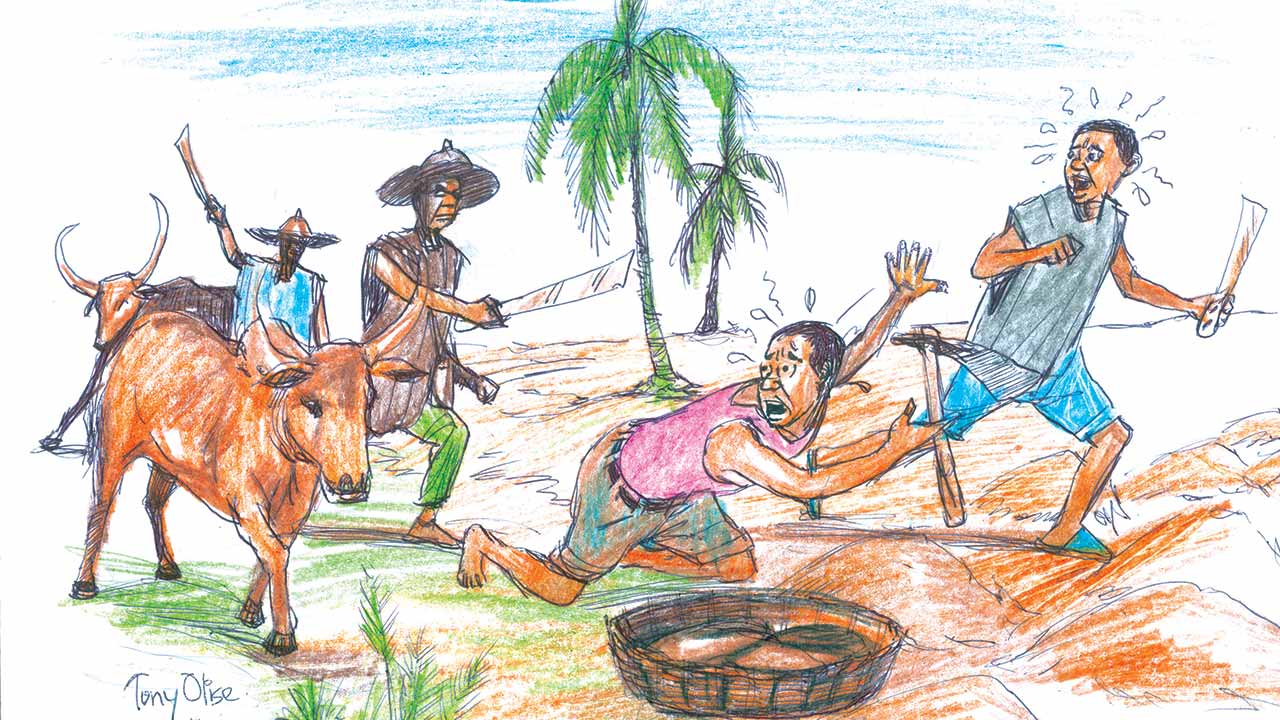The United Nations International Organisation for Migration (IOM-UN), and other stakeholders, have concluded rounds of meetings on an initiative geared towards finding lasting solutions to farmers/herders conflicts in Adamawa.
The final meeting on the project tagged: “Contributing to the Mitigation of Conflict over Natural Resources between Farmers and Headers Communities in Adamawa State, Nigeria (COMITAS)”, ended at a meeting on Wednesday, in Abuja.
COMITAS is being implemented in five local government areas (LGAs), of the state, including Demsa, Girei, Numan, Lamurde, and Mayo Belwa.
The News Agency of Nigeria (NAN), reports that it is the final project steering committee meeting to reflect on the achievements of IOM-UN, and other stakeholders since the project started two years ago.
Speaking at the meeting, the Chief of Mission (A.I), IOM-UN Migration, Prestage Murima, represented by Amos Nderi, project manager COMITAS, said the project had achieved its aim.
Murima said COMITAS had proffered solutions to the ongoing crisis between farmers and herders, and had also strengthened traditional conflict resolution through various mechanisms.
“I am happy to report that the consortium has indeed succeeded in completing its activities and in meeting its objectives.
“The project implementation has continued to engage all stakeholders, which include the government, agencies, leaders, and the affected communities, to provide the right solution,” she said.
Murima noted that amongst the achievements of COMITAS was the establishment of the Transhumance Information Management system by IOM, that covered 51 communities in the five LGAs.
“Over this period, the system received 2,206 early warning alerts that assisted communities in early response.
“In addition, IOM conducted 11 policy dialogues that were attended by over 400 community members and local government officials, as part of the project’s objective of building trust between the communities and authorities.
“The peace platforms established by the consortium during the project conducted over 300 meetings and dialogues which helped in building the social cohesion between farmer and herder communities in Adamawa State.
“The consortium conducted over 42 Early Warning and Early Response (EWER) trainings and established the Adamawa Forum for Farmers and Herders Relations (AFFHAR).
“It also worked with the media in peace messaging, that were all aimed at making a positive contribution to building sustainable peace,
“The project also conducted trainings on topics such as Interest Based Negotiation (IBN), as part of efforts to build the capacities and local authorities in natural resource management,” she said.
She also added that the consortium implemented Quick Impact Projects (QIPs), in communities that included provision of solar-powered motorised boreholes, and tree planting campaigns.
According to her, all these are efforts aimed at contributing to sustainable natural resource management and climate change adaptation.
“Also, social cohesion and natural resource management initiatives that will help in mitigating the conflicts between the farmer and herder communities.
“We are grateful to the European Union and the Nigerian Government, for their continued support in this very important initiative,” Murima said.
Gov. Ahmadu Fintiri, represented by Usman Diyajo, Commissioner for Livestock and Agriculture of the State, expressed appreciation to the EU, IOM, Mercy Corps and Search for Common Grounds, for carrying out the projects in his state.
“We deeply appreciate the support of the European Union and the implementing partners for the work they are doing in the state.
“As a government, we are aware that many factors contribute to farmers-herders conflict, such as competition over natural resources, climate change, environmental issues, population growth, land issues, stock routes, etc.
“Adamawa State Government is committed to ensuring peace in the state, and we welcome such initiatives that proffer solutions to farmers-headers crisis, and we have worked together with three implementing partners to achieve the objective of the projects.
According to the governor, the initiative has produced a positive impact on the farmers/headers communities in the state.
“We are grateful to all the stakeholders for their involvement in these projects.
“We also hope that the collaboration will continue because the project is aligned to the policies and priorities of Adamawa State Government, as well as the needs of communities affected by farmers/ headers conflict,” Fintiri said.







